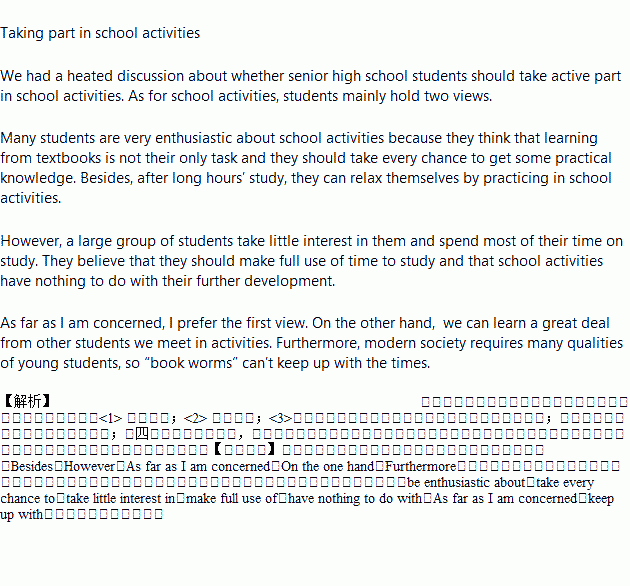题目内容
面对繁重的高中学习任务,高中生对参加学校活动有着不同的看法,请以 Taking Part in School Activities 为题,用英文写一篇100词左右的短文,着重介绍两种不同的观点和态度,最后谈谈你的个人看法。
△很多学生持拥护态度,认为我们不能死读书,参加学校活动可以丰富学校生活,学到实践知识.
△不少学生漠不关心,认为学生的任务就是学习,学生应该充分利用时间学习。
注意:1.首段已给出,不计入总词数。
2.适当分段,使用恰当的连接词,过渡词句。
参考词汇:实践知识 practical knowledge 高考 College Entrance Examination
Taking Part in School Activities
We had a heated discussion about whether senior high school students should take part in school activities. As for school activities, students mainly hold two views.
_____________________________________________________________________________________
_____________________________________________________________________________________
_____________________________________________________________________________________
_____________________________________________________________________________________
_____________________________________________________________________________________
_____________________________________________________________________________________
_____________________________________________

